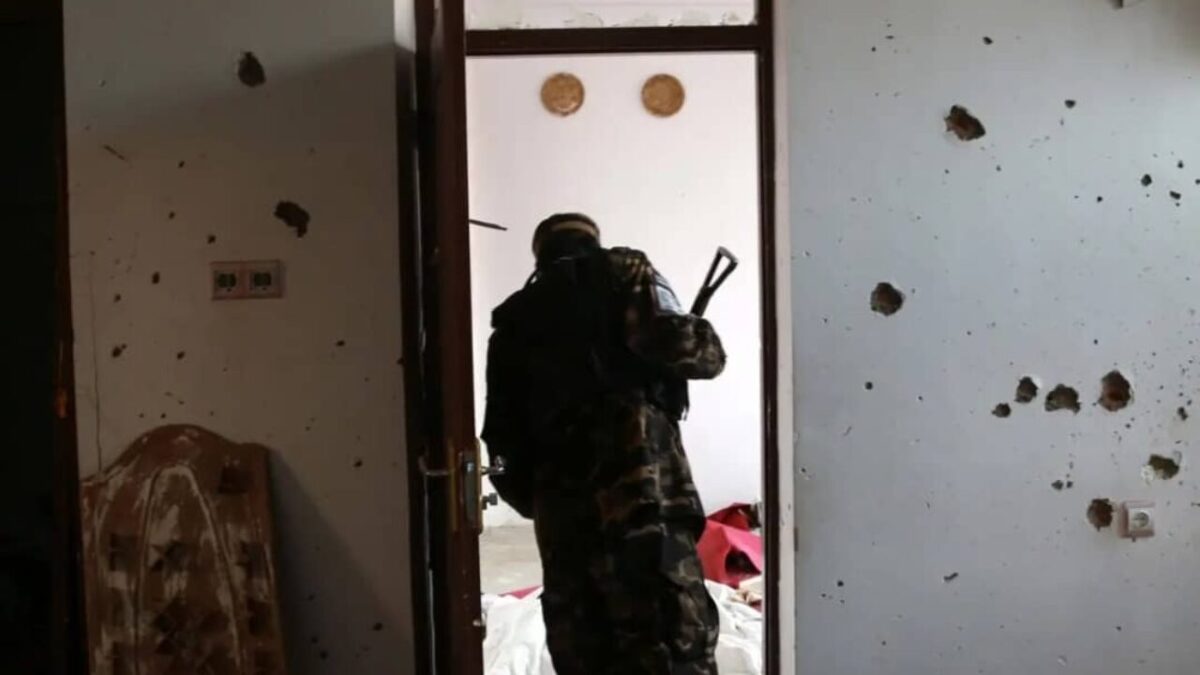KABUL — Taliban spokesman on Tuesday confirmed an overnight clash with fighters affiliated with the ISIS Khorasan branch in northeastern Kabul, though he continued to insist that the group has no significant presence in Afghanistan.
Zabihullah Mujahid told Amu that the confrontation occurred near the Marjan residential complex and an area locally known as the “narcotics town” in Police District 15.
While confirming the engagement, Mujahid declined to provide further details and maintained that ISIS-K does not maintain an “active or organized presence” in the country, though he acknowledged that some members remain “scattered.”
Local sources said the gunfight lasted several hours.
The incident marks one of the few publicly confirmed operations against ISIS-K in recent months. The United Nations, in its most recent report on Afghanistan, had previously noted a reduction in the number of major ISIS-K attacks since late January, following a period of intensified violence.
However, the circumstances of Monday’s operation have come under scrutiny. Sarah Adams, a former officer with the Central Intelligence Agency, alleged in a post on social media that the Taliban’s raid was not targeting ISIS, but rather one of their own intelligence facilities. She claimed the site, located in the same district, was controlled by the Zulfikar unit of Taliban intelligence services.
“We know this location well,” Adams wrote. “It was under investigation during our field work following the Kabul airport attack. The Taliban are still receiving counterterrorism funds from the U.S. via Doha.”
The Taliban have repeatedly asserted that they have dismantled ISIS-K’s operations in Afghanistan. They have also accused foreign governments and international organizations of exaggerating the threat posed by the group.
Security analysts say the Taliban’s attempts to both downplay ISIS-K and trumpet its defeat are part of a broader effort to present themselves as a credible counterterrorism partner on the international stage—particularly in light of their ongoing diplomatic engagements.
Still, Monday’s clash raises renewed questions about the group’s ability to control extremist threats within its borders.
“Despite Taliban claims, ISIS-K has not been eliminated,” said Ahmad Khan Andar, a Kabul-based military analyst. “These occasional operations—however they’re framed—are a sign that the threat remains.”





